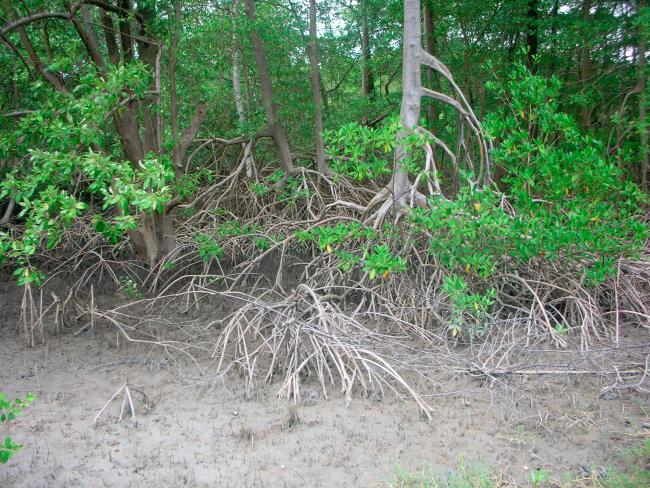In the frame of the joint research project "Mangrove Dynamics and Management - MADAM", the ZMT studied a mangrove area in the Caeté estuary in northeast Brazil. The project MADAM was carried out within the programme of the German-Brazilian scientific and technical cooperation. It was jointly conducted by scientists from the ZMT and the UFPa (Federal University of Pará) in Brazil.
Judging by the number of botanical, zoological and ecological studies, more scientific research has been carried out into mangrove ares than into almost any other tropical ecosystem. However, these individual studies have hitherto not been adequately integrated, hence blocking a better understanding of the system as a whole and of its key processes. Yet such an integrated view is precisely what is required of an ecosystematic approach if anthropogenic interventions or the impacts of changing climatic, hydrographic or geomorphological conditions on the system are to be assessed in time.
To enable management recommendations to be developed and compared, the ecosystem’s socioeconomic status needs to be ascertained, and the priorities and scope of system users and other interest groups need to be established and integrated.
Goals
The main aim of this ten-year research project was to establish the scientific principles allowing the sustainable management of natural resources in the Caeté mangrove estuary in northeast Brazil. Assessing the links between economic activity, society and the mangrove ecosystem entails acquiring a sound knowledge of not only the natural but also the relevant institutional, cultural, economic, social and political processes.
Suitable models were used to analyze causal relations, to forecast the effects of acute or chronic interventions on the stocks used, and to answer questions arising in connection with the role of resource management as an instrument of social and economic policy.
Project Partners (Germany) |
International Project Partners | |
|---|---|---|
|
Leibniz Centra for Tropical Marine Research (ZMT) PTJ
|
UFPa IBAMA CNPq/SCI |





